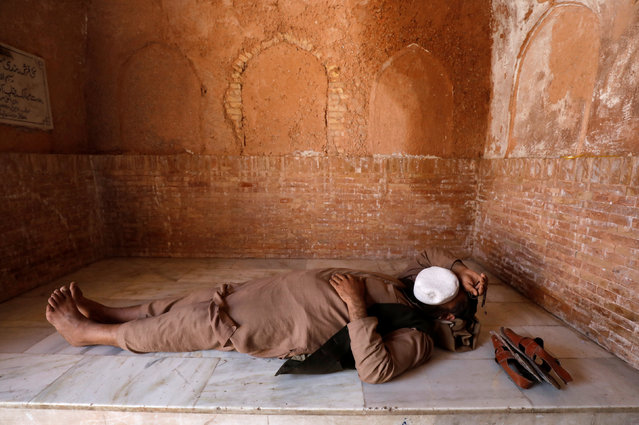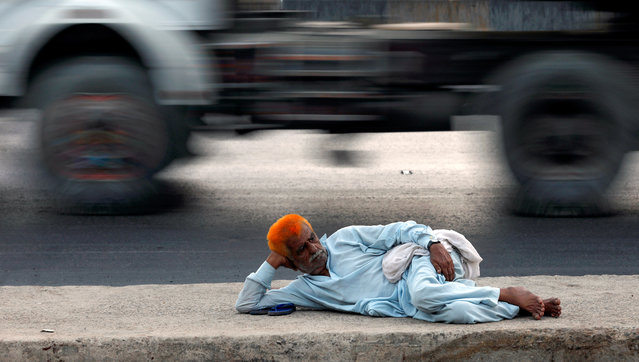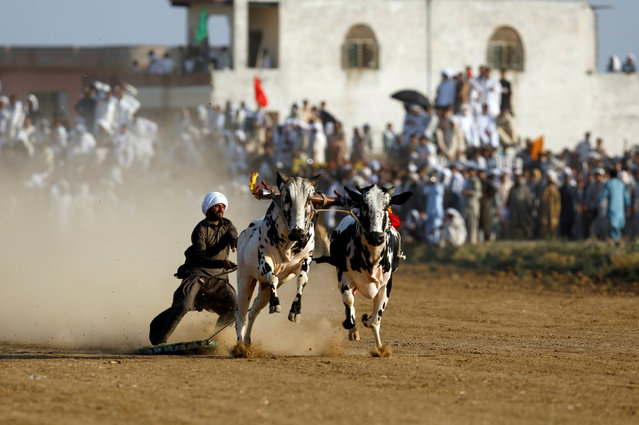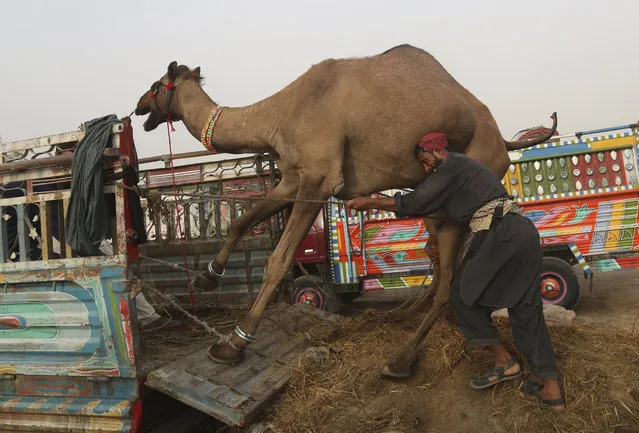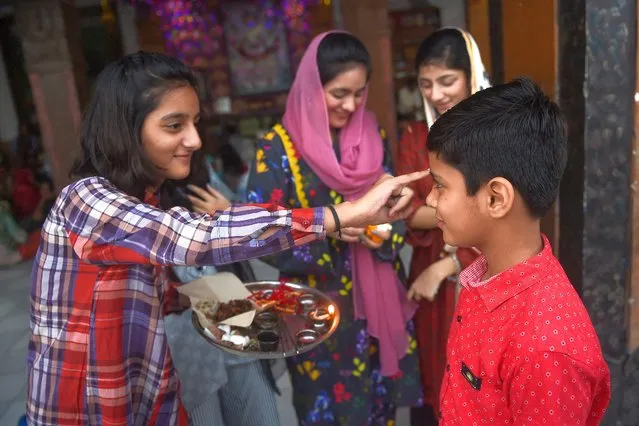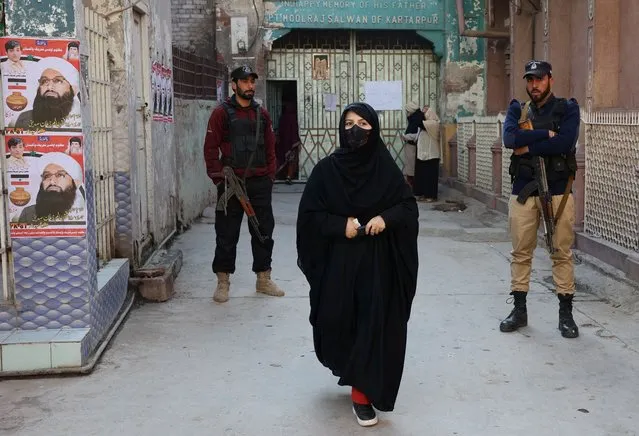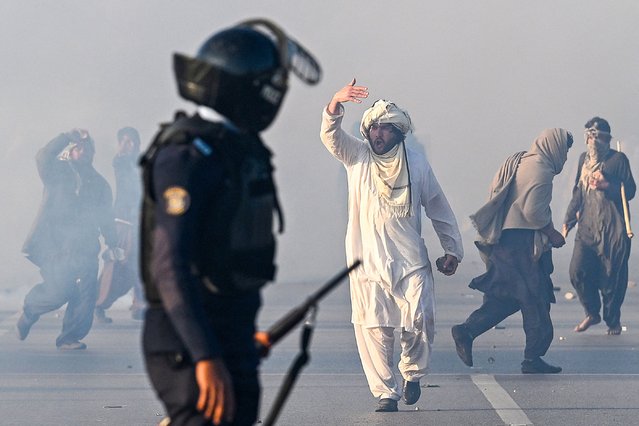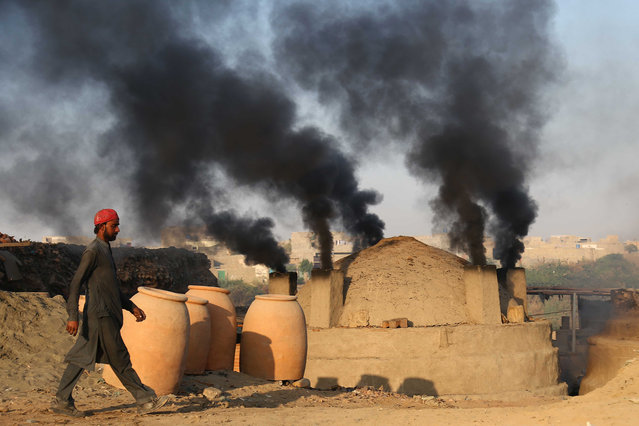
A man stands near smoke billowing from a brick kiln in Karachi, Pakistan, 14 December 2018. According to the UN report, carbon dioxide (CO2) emissions have increased for the first time in four years. The United Nations Conference COP24, held in Katowice, Poland, until 14 December 2018, searches for a common position in the fight against climate change. (Photo by Shahzaib Akber/EPA/EFE)
